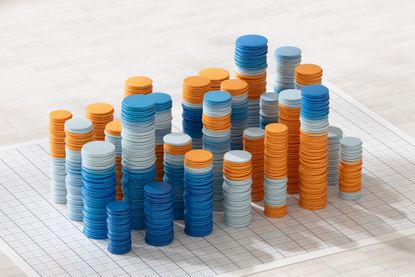MoneyWeek Masterclass
The MoneyWeek Masterclass will boost your financial knowledge, helping you to save more and spend smarter. Jargon-free explainers and advice from the expert money team at MoneyWeek.
-

What is value investing?
Value investing covers a broad range of bases, but the approach hinges on identifying companies that are worth more than their price suggests.
By Dan McEvoy Last updated
-

Too embarrassed to ask: what is a p/e ratio?
Videos Find out how to use the price/earnings ratio (p/e ratio for short) – a useful starting place for investors looking to value a company.
By MoneyWeek Last updated
Videos -

What is fiscal drag? How you could protect your money from the taxman
The freeze on income tax thresholds has been extended until the 2030/31 tax year, forcing millions into paying more tax as their wages rise with inflation. What is fiscal drag, and how can you protect your money from it?
By Daniel Hilton Last updated
-

What is private equity, and should you invest?
Private equity companies are a relatively risky investment, but they offer potentially superior returns for this risk. We explain what you need to know before investing in private equity.
By Dan McEvoy Last updated
-

What is a tracker fund?
Instead of trying to beat the market, tracker funds – also known as “passive” funds – try to track its performance. Here's what that means.
By MoneyWeek Last updated
-

What is an emerging market, and should you invest in them?
Emerging markets can be a great way to add diversification to your investment portfolio, but what is an emerging market, and is now a good time to buy into them?
By Dan McEvoy Last updated
-

What is a marginal tax rate?
Video Your marginal tax rate is simply the tax rate you pay on each extra pound of income you earn. Here's how that works.
By MoneyWeek Last updated
Video -

What is book value?
Explainer A popular way to value a company is to use the price/book ratio, which compares a company’s share price with its book value. But what is book value?
By MoneyWeek Last updated
Explainer -

I wish I knew what passive investing was, but I’m too embarrassed to ask
Videos Passive investing is when you buy a fund that aims to track the performance of a particular index. Here's how it works.
By MoneyWeek Last updated
Videos
